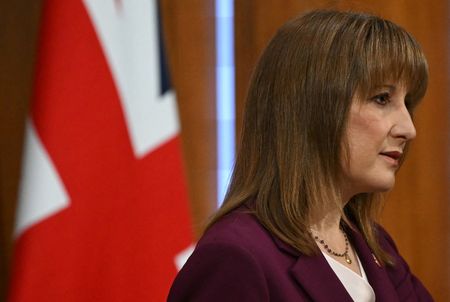BERLIN (Reuters) – Germany’s interior minister told social media platforms on Wednesday to do more to prevent disinformation before next month’s election, such as clearly identifying political advertising and labelling videos manipulated with AI.
Faeser met representatives of the U.S.-based Google, which owns YouTube; Meta, which owns Facebook and Instagram; Microsoft and X; and TikTok, owned by China’s ByteDance, as debate rages in the U.S. about whether regulating online platforms suppresses free speech.
Meta Platforms, for example, scrapped its U.S. fact-checking programs this month and its CEO, Mark Zuckerberg, said he would work with U.S. President Donald Trump to push back on censorship around the world, including in Europe.
X’s billionaire owner Elon Musk, who has used his platform to promote the far-right Alternative for Germany (AfD), is one of Trump’s leading advisors.
Faeser said that, given the current debate, she needed to remind the platform operators about their obligation to follow European law in Europe and to check their platforms more thoroughly for criminal content, not less.
“Criminal acts such as death threats must be reported to law enforcement authorities more quickly and consistently and must be deleted by the platforms,” she said in a statement.
“Political advertising must be clearly identifiable. Videos manipulated with AI must be labelled as such.”
She also said the algorithms used by the platforms to curate users’ feeds must be made more transparent “so that they do not fuel dangerous radicalisation processes, especially among young people”.
Faeser has repeatedly warned of possible disinformation campaigns, possibly from Russia, ahead of the federal parliamentary election on Feb. 23.
Spanish Prime Minister Pedro Sanchez told the World Economic Forum in Davos on Wednesday that social media owners should be held responsible for “poisoning society” and eroding democracy with their algorithms.
(Reporting by Sarah Marsh; Editing by Kevin Liffey)










